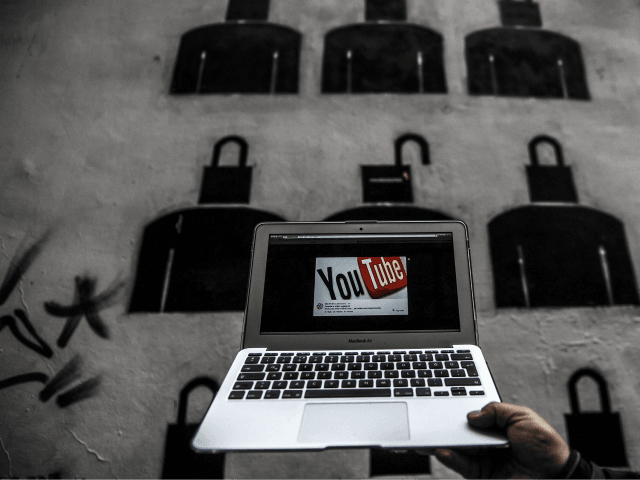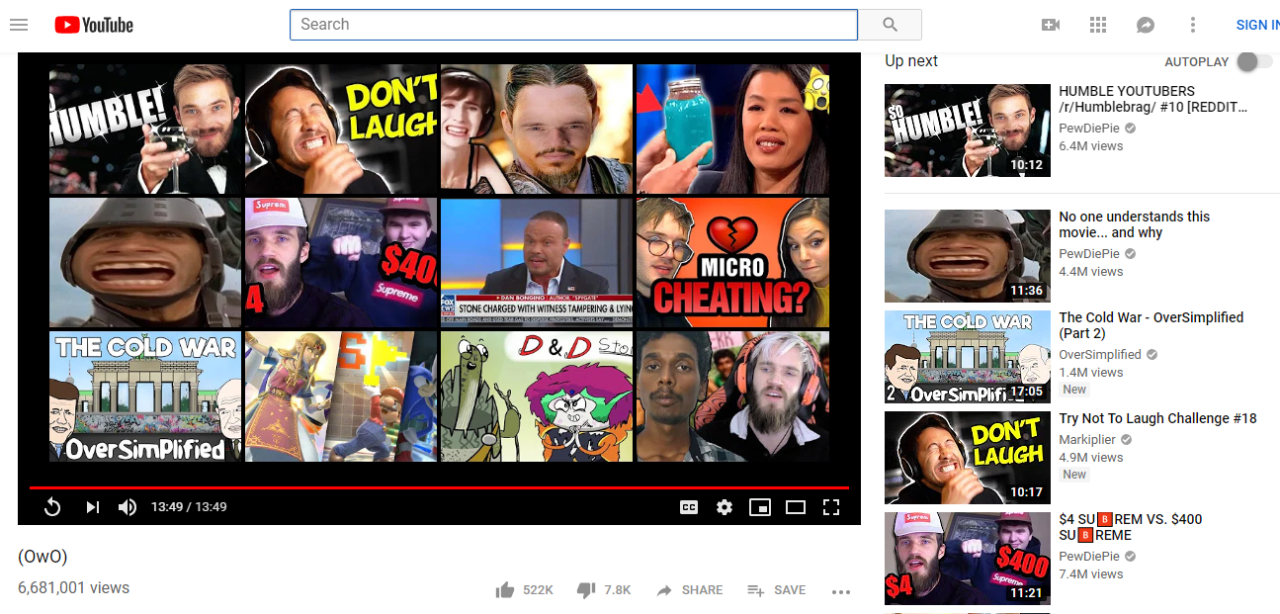Just a week after Breitbart News exclusively published internal discussions showing YouTube routinely intervenes in its search results to promote establishment news sources (including in searches for “abortion”), the Google-owned video platform is doubling down on search censorship.
YouTube announced Friday that it will intervene in recommended videos — the content that is recommended to viewers of a video on the right-hand sidebar. Previously a mix of content tailored to users’ viewing history, YouTube says it will now intervene to remove “content that could misinform users in harmful ways” from recommendations.
The change came just a day after BuzzFeed published a major article attacking the video hosting platform for recommending conservative and populist content to viewers. The videos identified by BuzzFeed as “hyperpartisan” include Dinesh D’Souza and Bill O’Reilly videos.
BuzzFeed tech reporter Charlie Warzel said that YouTube’s announcement was a “really meaningful step forward.”
When asked by Breitbart News how YouTube determines “content that could misinform users in harmful ways,” a YouTube spokesman said:
We rely on human evaluators and experts from all over the US to help train the machine learning systems that generate recommendations. These evaluators are trained using public guidelines and provide critical input on the quality of a video. For example, as part of their work, they might help distinguish simple health tips from a video promising a “miracle cure” for a serious disease or differentiate a documentary about earth science from a video that claims that the earth is flat. As we say in the blog post, we’re reducing the spread of content that comes close to—but doesn’t quite cross the line of—violating our Community Guidelines (also publicly available).
Breitbart News asked if the third parties that will be consulted by YouTube to censor recommended videos will include the Southern Poverty Law Center and the Anti-Defamation League. YouTube did not respond to this question.
Currently, recommendations are one of the primary methods for YouTube users to discover new content. In addition to a list of recommended videos on the sidebar, users will also be given a selection of recommended content after the conclusion of a video.
We’ve already seen what happens when YouTube intervenes in search results. As revealed by Breitbart News earlier this month, following complaints from a left-wing Slate reporter, YouTube added the search terms “abortion” and “abortions” to its internal blacklist of “controversial queries.” The result was that virtually all pro-life content fell out of the top ten search results for those terms, replaced with pro-abortion videos from the likes of Vice, BBC, and Last Week Tonight With John Oliver.
Nevertheless, YouTube’s spokesman insisted that the company does not intend to be biased:
Our automated systems are not designed to be biased against content belonging to individuals or groups based on political viewpoints or other attributes like gender, or sexual orientation. We’ve also begun regularly auditing and improving our automated systems to help ensure that unintended algorithmic bias isn’t present. We correct mistakes when we find them and re-train the systems to be more accurate moving forward.
But whether designed that way or not, the effect of YouTube’s crusade against “misinformation” has been to artificially downrank its ordinary creators while artificially promoting the mainstream media.
Allum Bokhari is the senior technology correspondent at Breitbart News. You can follow him on Twitter, Gab.ai and add him on Facebook. Email tips and suggestions to allumbokhari@protonmail.com.


COMMENTS
Please let us know if you're having issues with commenting.